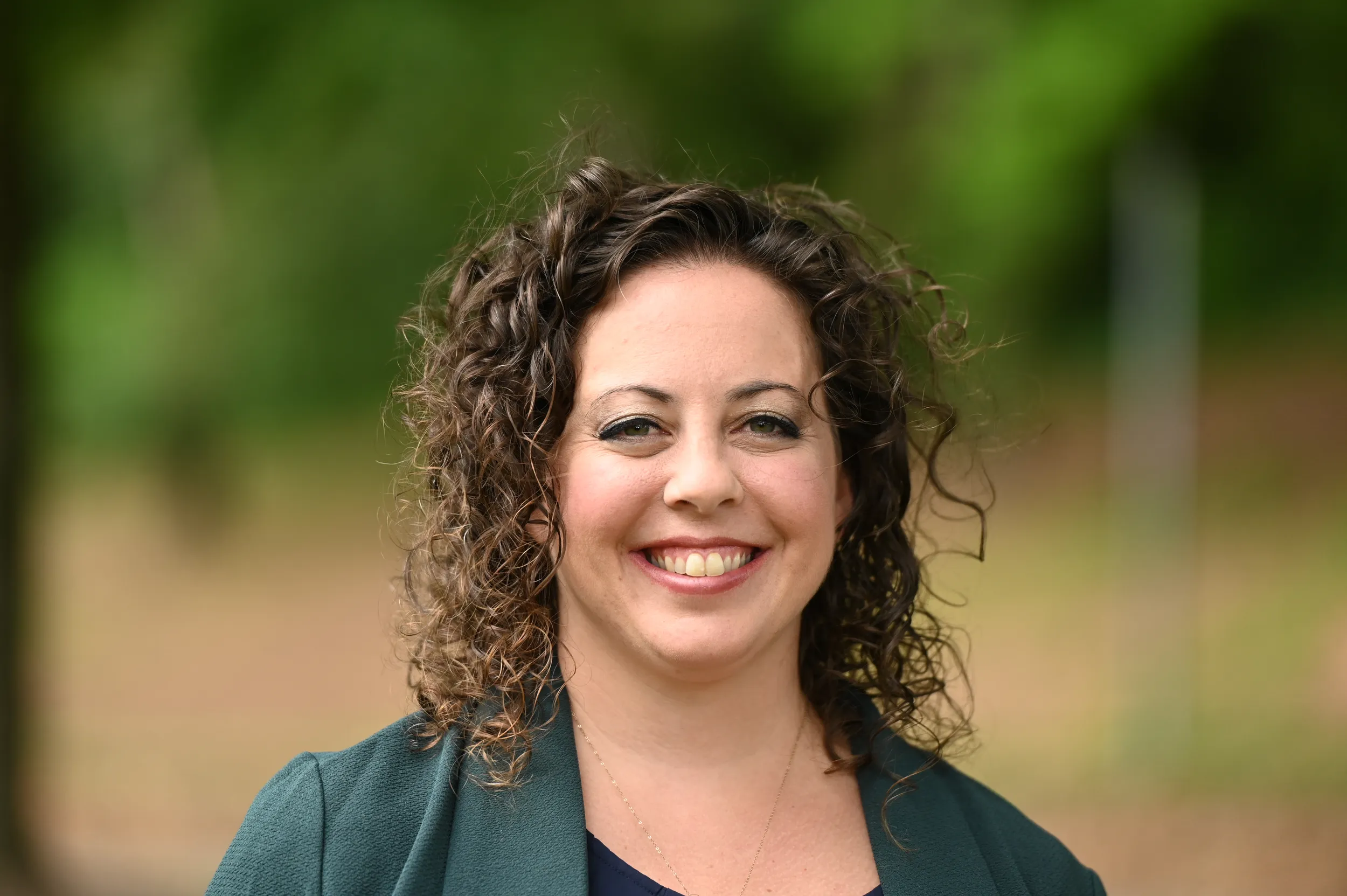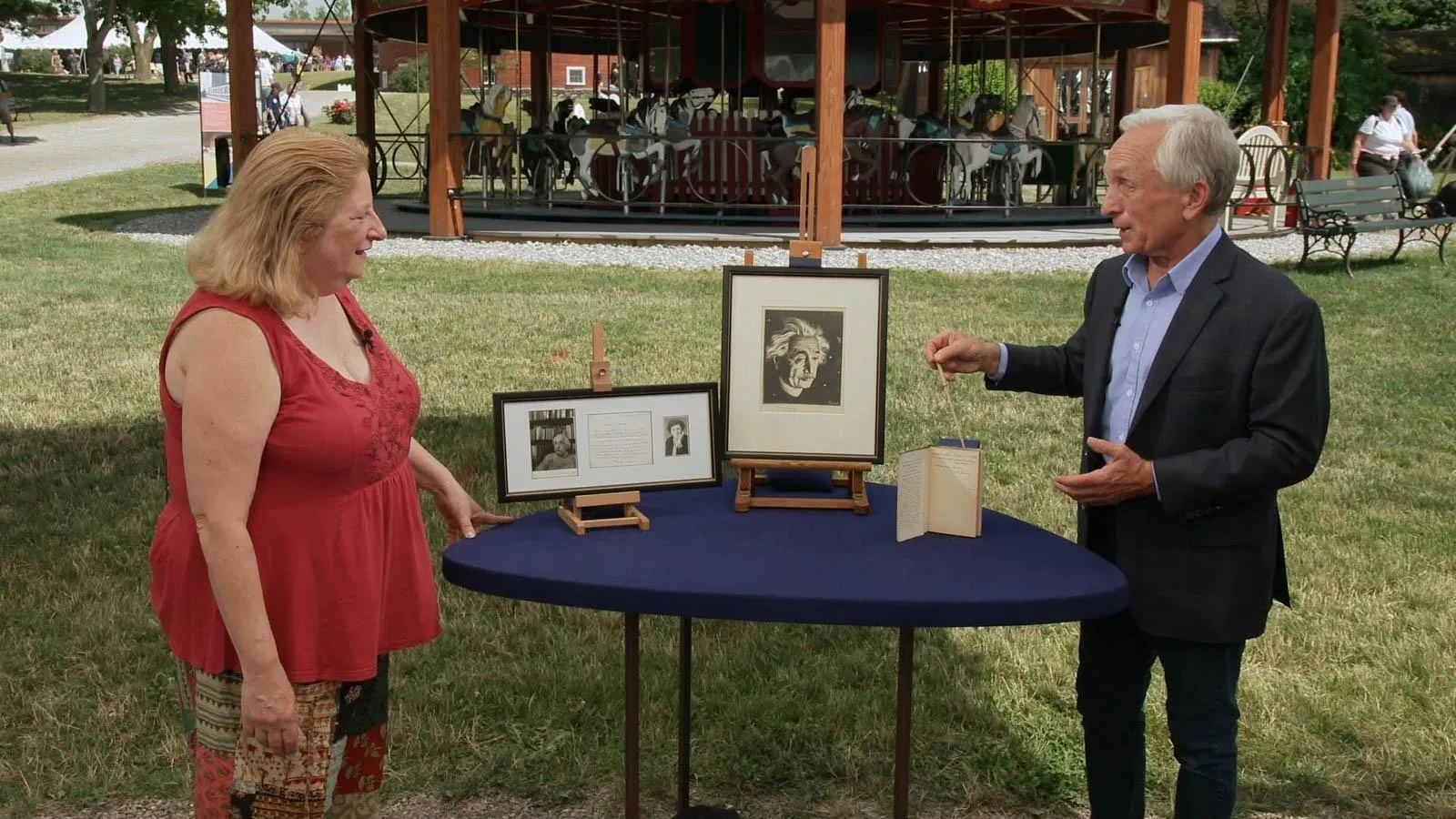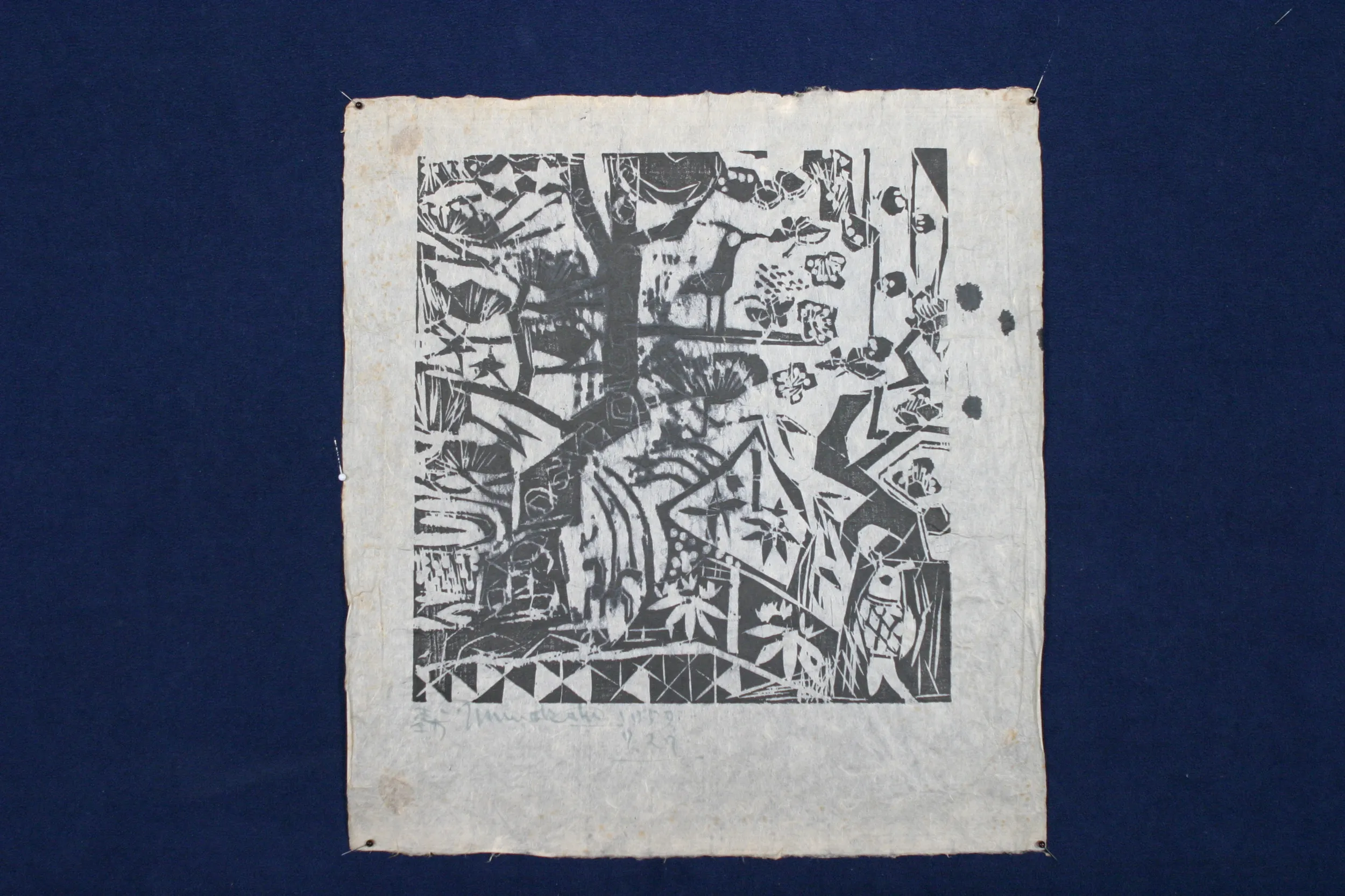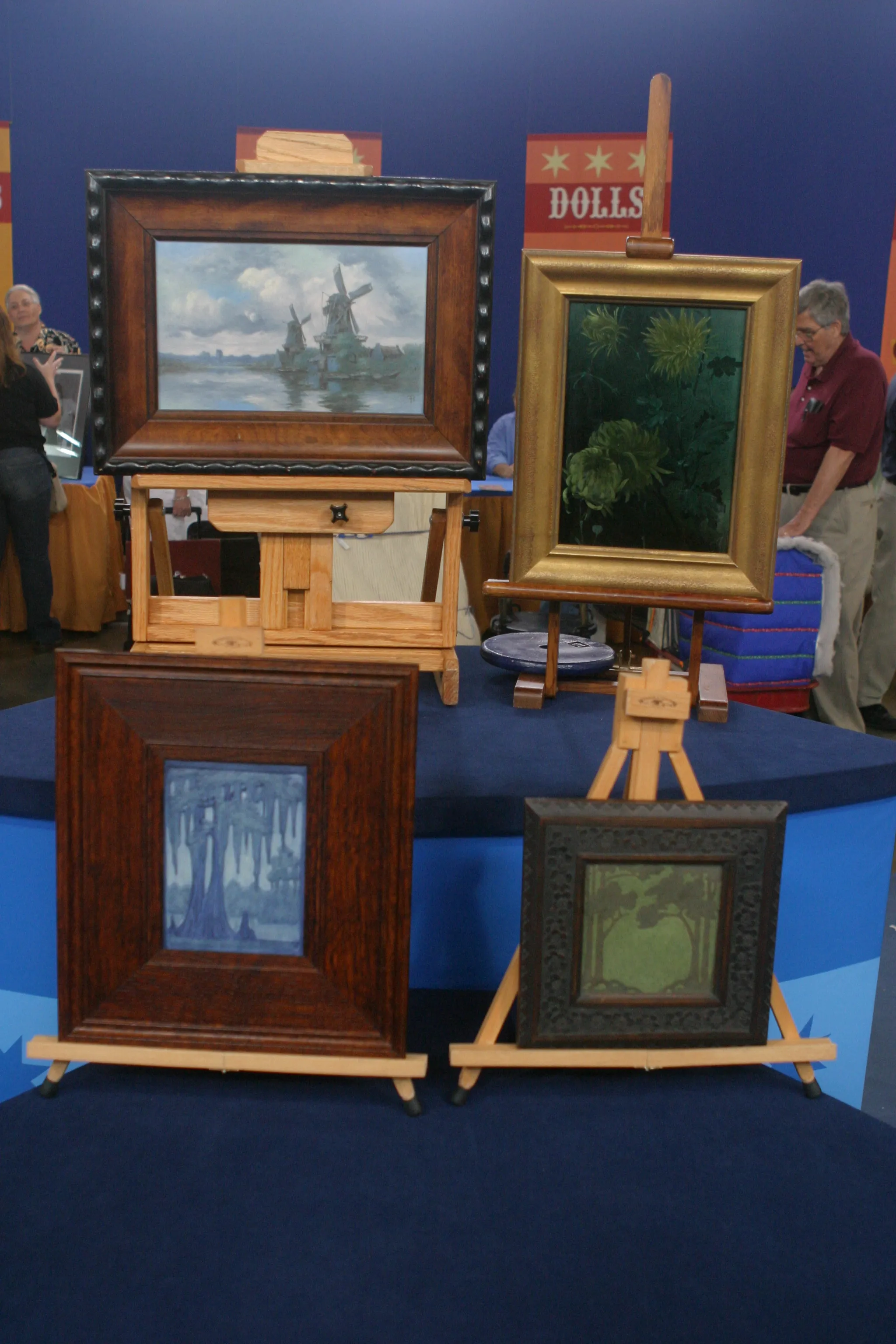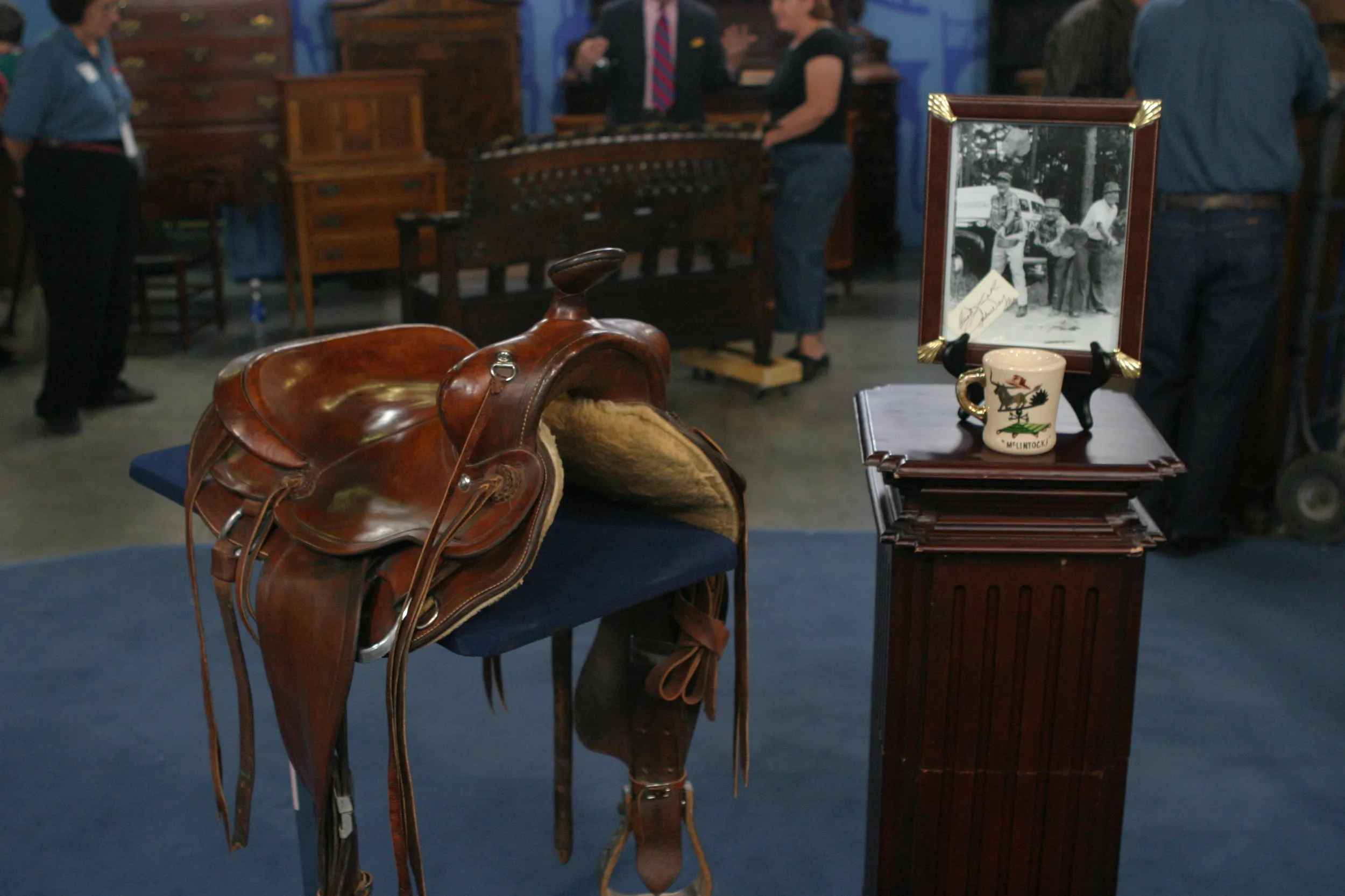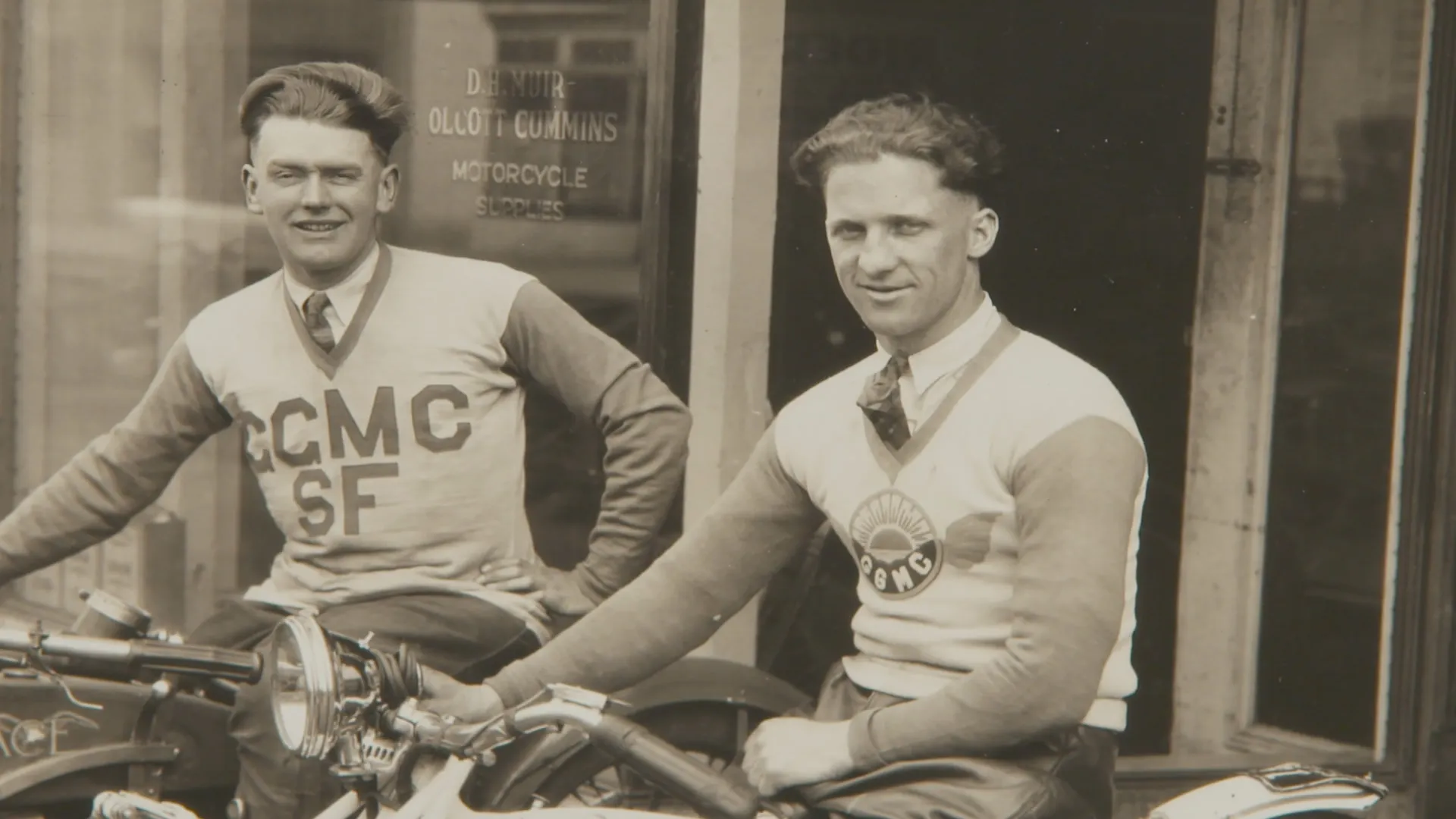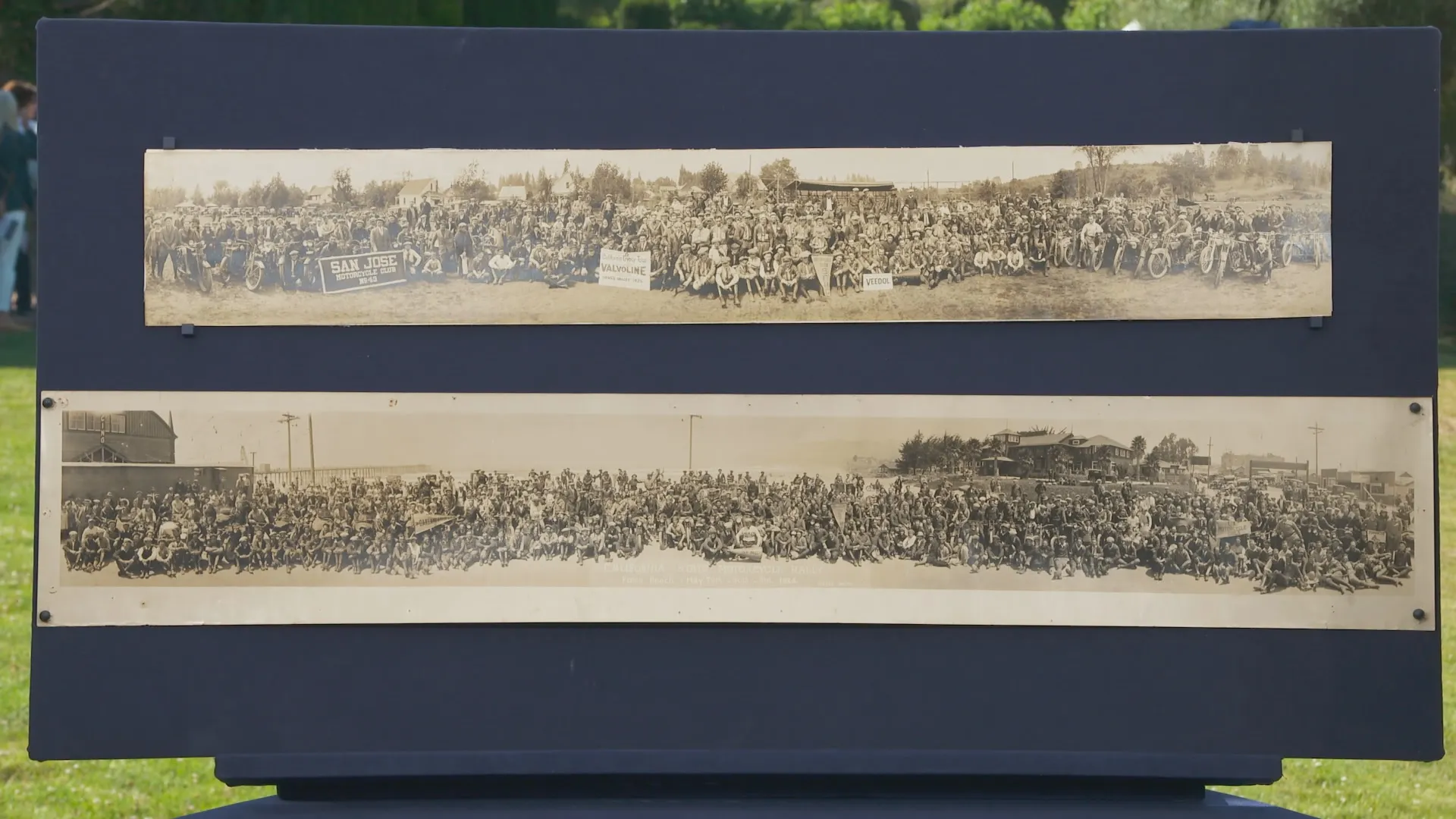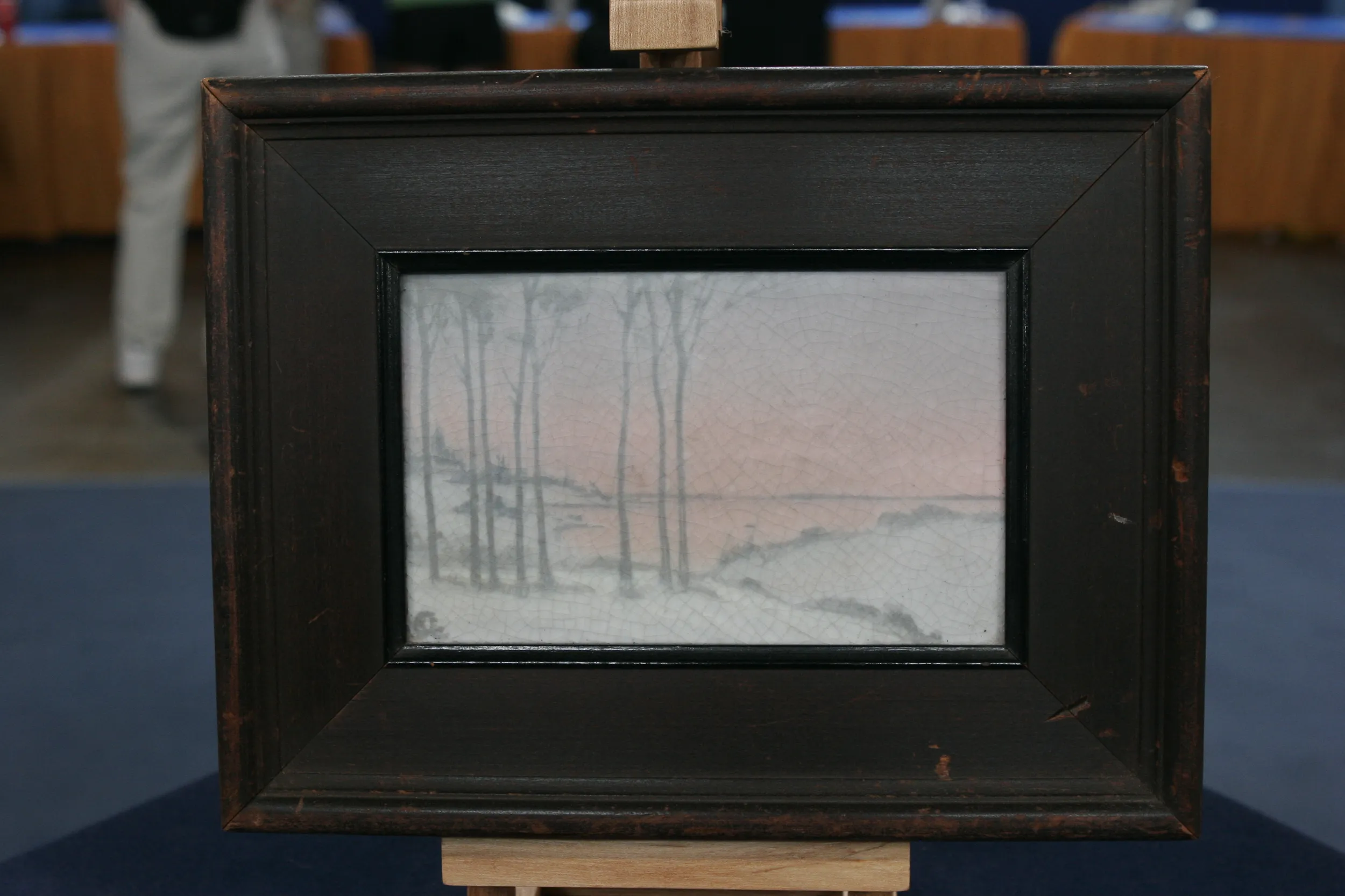GUEST: This is my grandfather's photographs from the 1920s. He had a shop on 57 Page in San Francisco and at 1550, um, on Market earlier. He handled high-end Aces and Indians.
APPRAISER: Motorcycles.
GUEST: And, um, uh, Dudley Perkins has on, across the street on Page, and he handled Harleys. This whole archive is 138 photographs. A lot of it has been in my uncle's possession up until a year and a half ago.
APPRAISER: Mm-hmm.
GUEST: And then he died earlier this year. And he gave them to me because I'm the one that knows about archives and, and working in the art business.
APPRAISER: Great. So what do you know about your grandfather's interest in motorcycles?
GUEST: It was a time of rebellion against the middle class.
APPRAISER: Mm.
GUEST: And my great-grandfather was Oakland Feed and Grain Company.
APPRAISER: Mm-hmm.
GUEST: And had a lot of, made a lot of money that way, so... (chuckles)
APPRAISER: Okay, interesting.
GUEST: Uh, he rebelled against that...
APPRAISER: Wow.
GUEST: ...and became the black sheep of the family. (laughs)
APPRAISER: Wow. The motorcycle was invented in the end of the 19th century, and the first motorcycle club in the United States was in 1903 in Yonkers, New York. But San Francisco, your grandfather's club, was immediately after that, in 1904.
GUEST: Uh-huh. Wow.
APPRAISER: So it was one of the first clubs in the United States, and an area where the motorcycle culture just seems to have really taken hold. Oakland was soon after that. And these photographs really represent those early motorcycle clubs. The clubs would gather, there'd be races, hill-climbing, uh, competitions. And is the baseline for what we think of as motorcycle culture today, which is club-oriented, community-oriented, um...
GUEST: Leather jackets and jeans and T-shirts. Yeah. (chuckles)
APPRAISER: Exactly. And that's here. We see that in these images. And what I find really fascinating in each of these images, which represent gatherings of the various motorcycle clubs in California in the 1920s, is that there is women, as well.
GUEST: Oh, yes.
APPRAISER: Women were just beginning to be able to vote. I think San Francisco Motorcycle Club admitted women before they could vote, and it was the first club to do so in the United States, which I think is amazing. And what can you tell me about this photograph here?
GUEST: That is the front of the Page store, 57 Page.
APPRAISER: Mm-hmm.
GUEST: My grandfather's on the, on the right.
APPRAISER: So that's his storefront. And he's on an Indian motorcycle?
GUEST: Right.
APPRAISER: Uh, which is one of the brands that he specialized in, wearing the San Francisco Motor Club sweater and a tie. (laughing):
GUEST: And a tie.
APPRAISER: (laughs) This is part of a much larger archive. I'll be giving you a value for what we have on the table here today.
GUEST: Okay.
APPRAISER: At auction, I would value each of these panoramas between $2,000 and $3,000. I would value this smaller photograph between $200 and $300. We're looking at a total value at auction between $4,200 and $6,300 at auction.
GUEST: Great.
